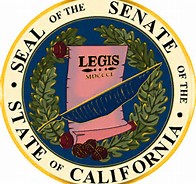|
A husband and wife are accused of paying physicians $2.1 million in kickbacks to prescribe compound creams, repackaged drugs and unnecessary urine toxicology tests in a scheme that bilked California workers' compensation carriers out of $23.2 million.
Christopher King, 38, and his wife, Tanya King, 37, allegedly masterminded the scheme using companies they owned including Monarch Medical Group Inc., King Medical Management Inc. and One Source Laboratories Inc. Complaints filed with the Orange County Superior Court claim they paid kickbacks to 22 providers, including six qualified medical evaluators, who are co-defendants in the case. Two pharmacists are also facing charges for mass-producing compound transdermal creams that were provided to workers as part of the alleged scam. During a press conference on Thursday, Orange County District Attorney Tony Rackauckas alleged that the Kings billed 27 carriers a combined $40 million for services related to the scheme. Carriers paid $23.2 million on those bills, he said. Rackauckas said the Kings operated three distinct strategies to defraud carriers. The alleged “snake oil scam” involved charging carriers excessive markups on compound creams provided to injured workers. The alleged “medication kickback scam” involved billing for repackaging drugs without disclosing the wholesale cost or that they were purchased on behalf of prescribing physicians. And through the alleged “bogus urine test scam,” the Kings charged hundreds of dollars for drug tests regardless of necessity, he said. According to court documents, the Kings carried out the so-called snake oil scam with the assistance of Charles Bonner, the 56-year-old owner of Steven’s Pharmacy in Costa Mesa, and Mervyn Miller, 66, manager of the pharmacy. Tanya King allegedly dictated ingredients for the pharmacy to use in creating tubes of compound creams. And the pharmacy “mass-manufactured transdermal compound creams using formulas that were profitable under the fee schedule” at her request. The Kings allegedly purchased 30-gram tubes of the compounds — a 72-hour supply — for $16 from the pharmacy. The tubes were provided to doctors who could dispense them from their offices to injured workers on the condition that the doctors also prescribed a second, 120-gram tube that the pharmacy would mail directly to patients, according to the charges. The Kings also allegedly offered providers 70% to 90% of the net profits from billing carriers $700 to $1,000 for the 120-gram tubes purchased for $40 each. Between 2011 and 2015, the Kings allegedly bought more than $1.2 million in compound creams from Steven’s Pharmacy. They are suspected of receiving $3.7 million in payments from workers’ compensation carriers and paying more than $2.3 million in kickbacks to physicians. From 2011 to 2015, according to the charges, the Kings also received more than $13 million from carriers for repackaged drugs for which physicians received $1.9 million in kickbacks to dispense. Court documents allege the Kings bought repackaged drugs from NuCare Pharmaceuticals and A-S Medication Solutions (neither company faces criminal charges). The Kings are accused of illegally billing workers’ compensation carriers without disclosing the wholesale cost of the medications or that they bought the drugs on behalf of the physicians. Prosecutors also allege they split proceeds from the sales of the repackaged drugs with prescribing physicians. Finally, prosecutors claim the Kings in 2012 created One Source Laboratories Inc. to bill work comp carriers for toxicology tests. From 2012 through 2015, the Kings, through One Source Laboratories, allegedly billed carriers more than $6 million for drug tests, some of which were not necessary. Rackauckas said the Kings provided technical staff as free labor to induce physicians to participate in the drug testing scheme. Providers would allegedly test injured workers under the guise of ensuring they were taking medications as prescribed. But regardless of the results, all samples collected were sent to another lab for additional testing. The Kings paid the lab a flat rate of $60 per test but billed carriers hundreds of dollars, according to Rackauckas. “It’s not exactly a mystery why our medical costs are so high,” he said. California Insurance Commissioner Dave Jones on Thursday said the “massive fraud scheme” affected 13,000 injured workers whose physicians may have been motivated more by kickbacks than providing appropriate care. “It’s very unfortunate the workers’ compensation insurance system has become a magnet for this kind of fraud,” Jones said. Six of the providers accused of accepting kickbacks from the Kings are certified by the Division of Workers’ Compensation to perform evaluations as QMEs, including one who was previously disciplined for overbilling. Dr. Chris Chen of Pleasanton allegedly received $289,000 in kickbacks for prescribing compound creams and repackaged drugs, and allowing One Source to perform quantitative tests on urine samples regardless of necessity. The DWC in 2012 suspended Chen’s QME certification in anesthesiology for six months, but stayed the suspension pending successful completion of a one-year probationary period. Chen, now 55, billed Corvel Corp. $2,865 for 10 hours 40 minutes of evaluation time when the proper bill should have been $625, according to the division’s disciplinary order. Other QMEs charged in the Monarch case include:
3 Comments
As of January 1, 2017, Senate Bill 1160 adds requirements to verify that a lien is legitimate, that it is filed only by the lien holder, and that that liens owned by providers who have been indicted or charged with crimes be stayed until the disposition of criminal proceedings. In compliance with these new requirements, the Division of Workers’ Compensation will make available an amended lien form which includes the required declaration under newly enacted Labor Code Section 4903.05(c). All liens filed after January 1, 2017 must use this new form. Liens that are subject to the filing fee and filed without the declaration will be dismissed.
SB 1160 also requires that all lien claimants file an original bill with their lien. SB 1160 additionally reduces utilization review requirements in the first 30 days following a work-related injury. It also mandates electronic reporting of utilization review data by claims administrators to the Division of Workers’ Compensation, which will enable the division to monitor claim processes and address problems. Assembly Bill (AB) 1244 introduced new changes to the workers’ compensation system that take effect January 1, 2017.
As a major step to combat fraud in the workers’ compensation system, AB 1244 added Section 139.21 to the Labor Code, which requires the Division of Workers’ Compensation to suspend certain medical providers from participating in the workers’ compensation system, including those who are convicted of a felony or misdemeanor involving fraud or abuse of any patient, the Medi-Cal or Medicare programs, or the workers’ compensation system itself. Labor Code section 139.21 provides for a hearing process regarding the suspension and a special lien adjudication procedure to address pending liens of those providers who are suspended based upon a criminal conviction. AB 1244 also made changes to Labor Code section 4906 related to the Attorney Fee Disclosure Statement, including requirements to ensure that the injured worker is informed of the specific district office location at which the injured worker’s case will be filed. The Office of Administrative Law (OAL) has approved the Division of Workers’ Compensation’s (DWC) final version of the Workers’ Compensation Information System (WCIS) regulations regarding medical billing reporting.
The regulations include release of the California EDI Implementation Guide for First and Subsequent Reports of Injury (FROI/SROI), Version 3.1, for reporting beginning 12 months following the effective date of the regulations (March 27, 2018). The regulations also include updates to the California Electronic Data Interchange (EDI) Implementation Guide for Medical Bill Payment Records, Version 2.0, which brings California reporting requirements into compliance with IAIABC standards for medical bill payment reporting, for reporting beginning six months following the effective date of the regulations (September 27, 2017). DWC believes that these updates will allow WCIS to collect more robust and useful data that will assist with research regarding workers’ compensation issues. |
AuthorHefley Law, APC Archives
September 2021
Categories |


 RSS Feed
RSS Feed